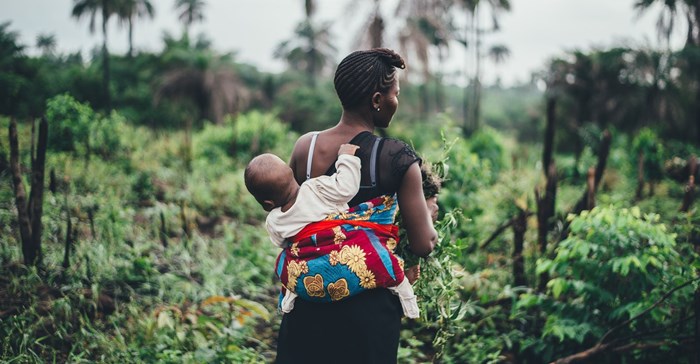Significant rise in vaccination rates in sub-Saharan Africa

In Côte d'Ivoire, Uganda, and Zambia, United States support contributed to a steady rise in vaccinations–with the most notable increase in Uganda, which in just six weeks experienced a 33% increase in first-dose shots among the eligible population.
The case studies detail several efforts to increase vaccinations in countries, including targeted interventions under the Initiative for Global Vaccine Access, or Global VAX, an initiative that encompasses the US Government’s work in more than 100 countries to increase access to Covid-19 vaccines.
Even as US-donated vaccine supplies continue to increase to meet demand, many countries face significant challenges in turning vaccines in vials into shots in arms. Some don’t have enough ultra-cold chain freezers to stop doses from spoiling, others have large rural populations living miles from the nearest health facilities, and many struggle to combat widespread misinformation and increase vaccine confidence.
USAID is working to address the specific needs of these communities, coordinating in lockstep with local governments, nonprofits and health care partners, and investing resources to accelerate vaccinations. Here are some of the results:
Côte d’Ivoire
Facing low national vaccination rates – around 22% – the government of Côte d’Ivoire set an ambitious goal to administer 2.5 million vaccinations over one month in December 2021. Recognising that vaccine hesitancy was a major barrier to uptake, the US Government and other partners have focused efforts on education campaigns and fighting misinformation. Since March 2020, USAID’s Breakthrough ACTION project has been collecting, analyzing, and addressing harmful Covid-19 rumors in real time through a Rumor-tracking Management System (RMS).
The US and other partners also supported a December vaccination campaign led by Côte d’Ivoire’s government that used targeted national radio messaging to dispel Covid-19 rumors and misinformation and educate residents about the benefits of getting vaccinated. By the end of the month, the government had reached 93% of its goal – and more than 52 million Ivoirians had received at least one dose. That bumped the national first-dose vaccination rate from 22% to 36% among the eligible population, compared to the average 14% across the African continent.
Uganda
Though Uganda received its first historic arrival of Covid-19 vaccine doses in March 2021, shortages in supplies and overwhelmed health systems meant the country fell behind in vaccinations. By November 2021, only 14% of Uganda’s population of 44 million had received their first dose.
The US Government worked with the Government of Uganda closely to prepare the country to receive several large vaccine shipments in Q3 of last year – including 8 million Pfizer doses donated by the US Government in partnership with COVAX. The influx of vaccines, coupled with the support to help with distribution efforts, increased the percentage of eligible Ugandans that had received at least their first dose of Covid-19 vaccine from 14% to 47% in just six weeks.
The US Government – including USAID and the CDC – supported the Government of Uganda to develop a comprehensive “Accelerated Mass Vaccination Campaign” that allowed the country to quickly pivot to open access to vaccines to all adult – while still focusing on high-risk populations. USAID supported critical project management to help logistics and community mobilisation to get vaccines to communities as quickly as possible.
The US Government also set up a new management team that included USAID and the CDC to track data across the country using a critical tool developed by the World Health Organization to capture data needed to track vaccine roll-out. By working together and training local workers to monitor the systems, Uganda’s government can now track and respond to gaps in their vaccination coverage. Now, five of nine regions in the country have exceeded 55% coverage for at least one dose of vaccine – just within that six-week period.
Zambia
As Zambia experienced its third wave of Covid-19 cases and began to anticipate a fourth wave last fall, the President of the Republic of Zambia requested support from the US Government to expand and accelerate vaccination efforts across the country. In response, the Government of Zambia, in partnership with USAID and the CDC, kicked off a national Covid-19 vaccination campaign on World Aids Day, December 1, 2021. This launch leveraged the World Aids Day slogan of “Ending Inequalities. Ending AIDS. Ending Pandemics” and added a second focus with the theme: “Fight Covid-19! Take the Vaccine! Protect Zambia: Two Million Doses in Arms By Christmas.”
By pairing these two events and messages, more Zambians were reached than ever before.
To get shots into arms, USAID engaged local leaders and prioritised delivering Covid-19 vaccines and messages directly to places where people gather – such as markets, stadiums, bus-stations, schools, universities, places of worship, and businesses – and provided door-to-door vaccination services to reach eligible people in their homes. In addition, the campaign used local media and national and community radio programs in local languages to deliver key messages directly to people, reaching population groups that might not have been contacted otherwise.
This joint campaign achieved exceptional results, especially in the Copperbelt Province, Zambia’s second most populated region, where USAID supported vaccination efforts alongside Zambia’s Ministry of Health. The percentage of the eligible population fully vaccinated in the province nearly doubled, with rates jumping from 12 to 22% in just one month, the most striking increase since Covid-19 vaccines first arrived in-country.
Strategic efforts in Zambia have relied on leveraging support from existing successful health systems and building on that infrastructure. For example, USAID has been able to work with partners including the United States President's Emergency Plan for Aids Relief (PEPFAR), the CDC and Zambia’s Ministry of Health to integrate Covid-19 vaccinations into existing HIV treatment centres. By building on previous public-health successes and long-standing US support in Zambia, USAID has helped expand vaccine access to vulnerable groups, including people living with HIV.
Source: African Press Organisation

APO is the sole press release wire in Africa, and the global leader in media relations related to Africa. With headquarters in Dakar, Senegal, APO owns a media database of over 150,000 contacts and the main Africa-related news online community.
Go to: www.bizcommunity.com/PressOffice.aspx?cn=apogroup




